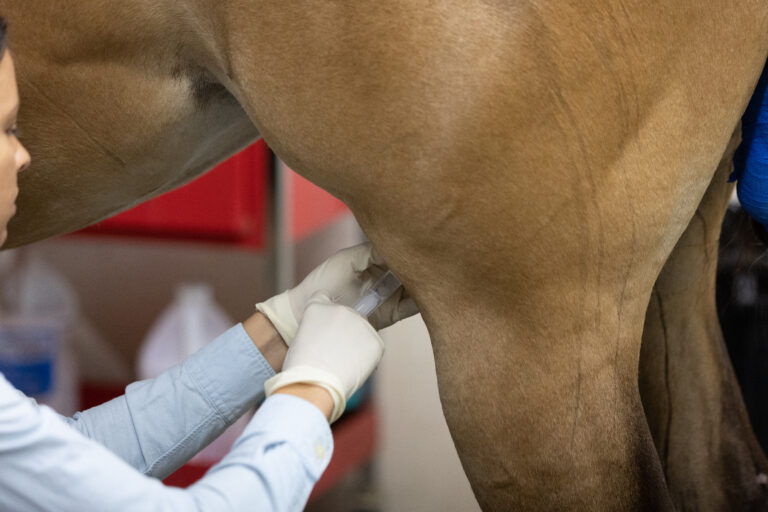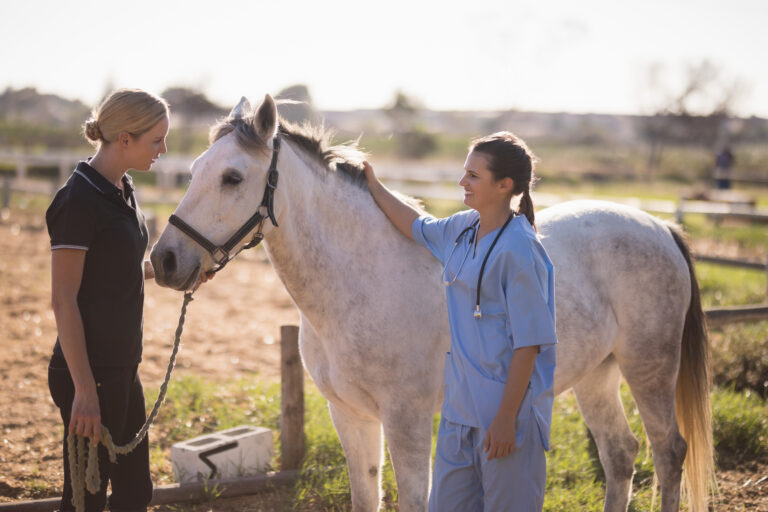
In this episode, Timothy Lescun, BVSc, PhD, DACVS, of Purdue University, described his work in the field of equine orthopedics as well as his wealth of experience using pentosan polysulfate sodium. While this intramuscular joint therapy just received FDA approval for use in horses in December 2022, Lescun has been seeing its benefits for decades. Early in his career, he practiced in the racing industry in Australia, where pentosan has been licensed and available for horses since the 1990s.
“Racehorse testing for different drugs is fairly strict in Australia,” he explained. “There were long withdrawal times for standard intra-articular treatments, so pentosan was considered one of those treatments that could be used and would give us results.”
Knowing firsthand how helpful the product can be, Lescun said he’s been a quick adopter since its approval in the United States. He described a sport horse that’s been one of his patients for years. Like many performance horses, he had a multitude of joint issues that Lescun managed with regular intra-articular steroid injections. He recommended taking a more systemic approach and switching to pentosan, however, to try to get away from the frequent joint injections.
“It’s obviously not ideal to be injecting the joints all the time, so it’s been a very useful way to manage this horse over the long haul of his show career,” he said.
The gelding, now in his teens, receives pentosan injections every six months and continues to compete at the same level.
Lescun went on to explain how he works up these joint lameness cases and makes treatment recommendations. In closing, he noted that the needle continues to move forward with the therapies and technologies available to monitor and manage this progressive and degenerative disease.
Listen to this episode of Daily Vet Life, brought to you by Dechra, to learn more about Dr. Lescun’s research and real-life experiences using pentosan polysulfate in horses.
About Dr. Timothy Lescun
Timothy Lescun, BVSc, PhD, DACVS, is a Professor of Large Animal Surgery and interim head of Purdue University’s Department of Veterinary Clinical Sciences. He attended veterinary school at the University of Melbourne in Australia, completed his residency at Purdue University in 1999, and obtained Board Certification with the American College of Veterinary Surgeons in 2000. He completed his PhD in 2015.
Lescun is an experienced equine surgeon with clinical interests in orthopedics, lameness, sports medicine, and general equine surgery. His research activities focus on clinical and pre-clinical orthopedic investigations. His current equine research interests include the use of modeling techniques, biomechanics, advanced imaging, and bone properties to assist in fracture risk prediction and prevention in racehorses. As a faculty member, Lescun enjoys teaching surgery and mentoring veterinary students, surgical residents, and graduate students.
Related Reading
- Pentosan Shown to Control Clinical Signs of Osteoarthritis in Horses
- Researching Biomarkers to Understand Equine Joint Health
- Systemic and Intra-Articular Therapies for Lame Horses
Stay in the know! Sign up for EquiManagement’s FREE weekly newsletters to get the latest equine research, disease alerts, and vet practice updates delivered straight to your inbox.




